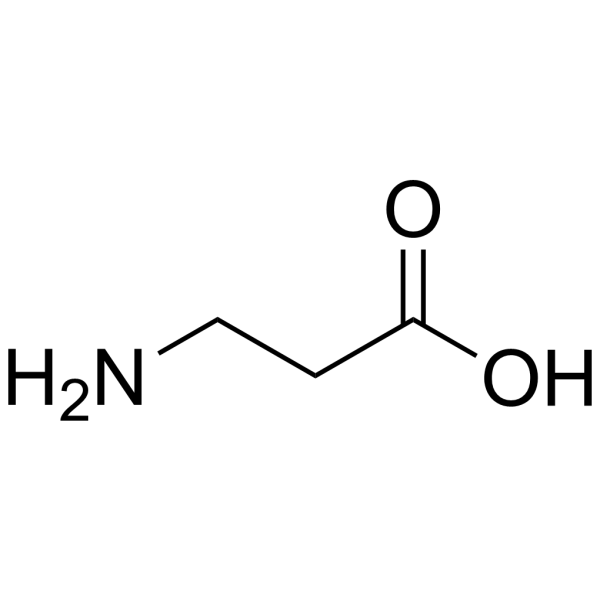Home
Products
beta-Alanine



| Product Name | beta-Alanine |
| Price: | $23 / 20mg |
| Catalog No.: | CN00696 |
| CAS No.: | 107-95-9 |
| Molecular Formula: | C3H7NO2 |
| Molecular Weight: | 89.0 g/mol |
| Purity: | >=98% |
| Type of Compound: | Alkaloids |
| Physical Desc.: | Powder |
| Source: | From Trout |
| Solvent: | Chloroform, Dichloromethane, Ethyl Acetate, DMSO, Acetone, etc. |
| SMILES: | NCCC(=O)O |
| Contact us | |
|---|---|
| First Name: | |
| Last Name: | |
| E-mail: | |
| Question: | |
| Description | β-Alanine is a non-essential amino acid that is shown to be metabolized into carnosine, which functions as an intracellular buffer. |
| Target | Human Endogenous Metabolite |
| In Vitro | Cells treated with β-alanine display significantly suppressed basal and peak ECAR (aerobic glycolysis), with simultaneous increase in glucose transporter 1 (GLUT1). Additionally, cells treated with β-alanine exhibit significantly reduced basal and peak OCR (oxidative metabolism), which is accompanied by reduction in mitochondrial content with subsequent suppression of genes which promote mitochondrial biosynthesis. Suppression of glycolytic and oxidative metabolism by β-alanine results in the reduction of total metabolic rate, although cell viability is not affected.β-alanine is shown to reduce both cell migration and proliferation without acting in a cytotoxic fashion. Moreover, β-alanine significantly increases malignant cell sensitivity to doxorubicin, suggesting a potential role as a co-therapeutic agent[1]. |
| Density | 1.2±0.1 g/cm3 |
| Boiling Point | 237.1±23.0 °C at 760 mmHg |
| Flash Point | 97.2±22.6 °C |
| Exact Mass | 89.047676 |
| PSA | 63.32000 |
| LogP | -0.86 |
| Vapour Pressure | 0.0±1.0 mmHg at 25°C |
| Storage condition | Store at RT. |